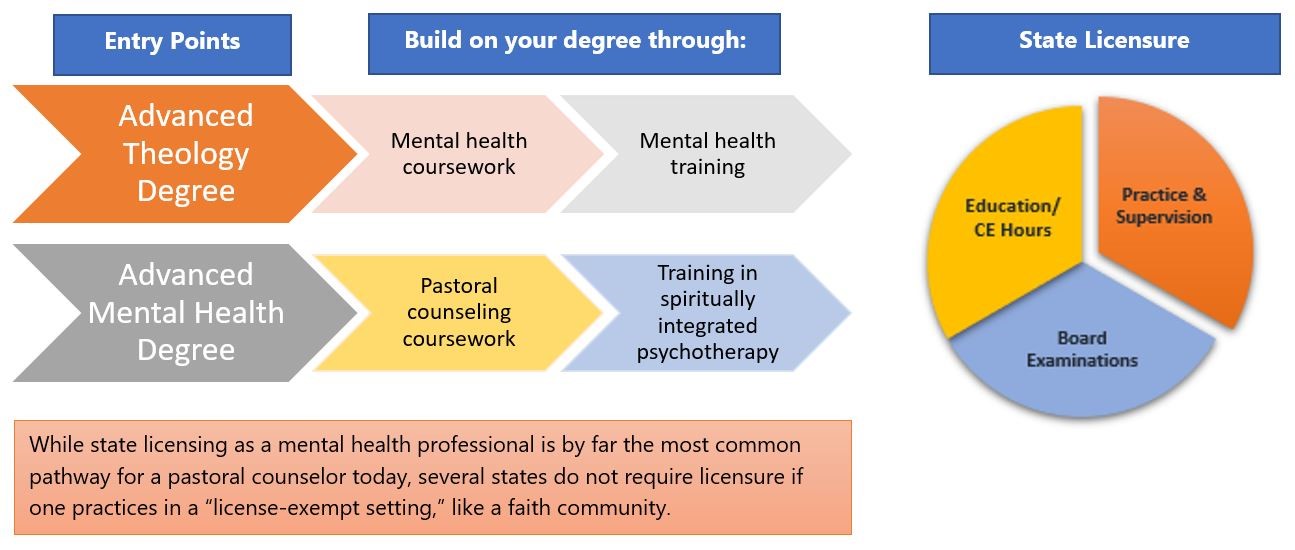The field of pastoral counseling or spiritually-integrated psychotherapy has changed significantly in recent decades. In the past, an individual interested in this field might pursue an M.Div. with a concentration in pastoral care and counseling. Then, upon graduation, she/he could enroll in an independent training program (often for two to four years) that combined education on mental health with supervised practice. At that point, the individual might then become officially certified by that center or association and offer her/his services as a pastoral counselor. In recent years, state boards have become much more involved in regulating the profession. ACPE does not certify pastoral counselors at this time.

To practice as a pastoral counselor today, most individuals do so by becoming licensed mental health professionals, whether as Licensed Professional Counselors (LPCs), Licensed Marriage and Family Therapists (LMFTs), Licensed Mental Health Counselors (LMHCs), Licensed Clinical Social Workers (LCSWs), or Licensed Psychologists. Five states (Kentucky, Maine, New Hampshire, North Carolina, and Tennessee) offer licenses specifically for pastoral counselors: Kentucky Licensed Pastoral Counselors, Maine Licensed Pastoral Counselors, New Hampshire Pastoral Psychotherapists, North Carolina Fee-Based Practicing Pastoral Counselors, and Tennessee Clinical Pastoral Therapists.
Licensing requirements vary depending on the license type and state. Most require specific mental health coursework and degrees, a specified number of hours of practice and supervision, and board examinations. If you received an advanced degree in pastoral counseling, your coursework might satisfy some (if not all) education requirements; an important next step will be to supplement with mental health coursework and/or trainings. If you received an advanced degree in mental health, it will be important to seek out additional training opportunities to build specialization if you wish to practice as a pastoral or spiritually integrated mental health practitioner. ACPE’s Spiritually Integrated Psychotherapy Program is one avenue for building these competencies.
Although ACPE does not certify pastoral counselors at this time, we are excited to begin offering continuing education programs for therapists and counselors, and we look forward to seeing the ways in which the Spiritually-Integrated Psychotherapy and Pastoral Care Specialist curriculum and programs develop going forward. We hope you will consider joining ACPE and contributing to the future of this dynamic field!


